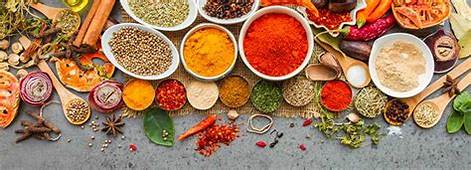Importance of well balance diet
All food contains all of the nutrients we need to be healthy, it is necessary to eat various foods in sufficient amounts. A good diet will include many different foods, and sufficient in quantity and quality to meet an individual’s need for food energy and other micro nutrients.
TURNIPS
Typical serving size:
½ cup, cooked (275 oz or 78 g)
HOW THEY HARM
WHAT THEY HEAL
Cancer High cholesterol Vision Bones Reproduction Immune system Turnips (including the yellow rutabagas) are economical, healthful, and easy to prepare and cultivate (even in soil of poor quality), and full of vitamin C and some essential amino acidsOne cup of boiled turnips yields only 35 calories while providing 18 mg of vitamin C, 35 mg of calcium, and 210 mg of potassium
They also contain lysine, an amino acid that may help to prevent and manage cold sores
QUICK TIP:
Go beyond boiling Most people serve boiled turnips, but they can also be baked, braised, or steamedThe roots and green tops make a tasty addition to salads, stews, and soups
The turnip tops, or greens, which many cooks discard, are even more nutritious than the roots themselves
One cup of boiled greens provides 40 mg of vitamin C, about 200 mg of calcium, and nearly 300 mg of potassium
In addition, unlike the roots, the greens are an excellent source of beta- carotene, an important antioxidant nutrient that the body converts to vitamin A
The same cup of boiled greens yields nearly 7,500 IU of vitamin A and 5 g of fiber
Health Benefits
Protects against some cancersAs a member of the cruciferous family, which includes cabbage, broccoli, and radishes, turnips contain sulfurous compounds that may protect against certain forms of cancer
Lowers cholesterol
Both the tops and roots of turnips are a useful source of fiber, including soluble dietary fibers that help soak up LDL (“bad”) cholesterol
Promotes total body health
One cup of cooked turnip greens contains generous amounts of beta- carotene which the body converts to vitamin A
This antioxidant plays a role in healthy vision, bone growth, reproduction, cell functions, and a healthy immune system
Health Risks
May cause flatulenceLike other cruciferous vegetables, turnips can cause bloating and gas
Thyroid function
Turnips contain two goitrogenic substances, progoitrin and gluconasturtin, which can interfere with the thyroid gland’s ability to make its hormones
These compounds do not pose a risk for healthy people who eat moderate amounts of turnips, but anyone with hypothyroidism should cook this vegetable since cooking appears to deactivate goitrogens
Allergies
Buying Tip
s
6 cm) in diameter
They’ll likely have a more woody taste
Storing Tip




